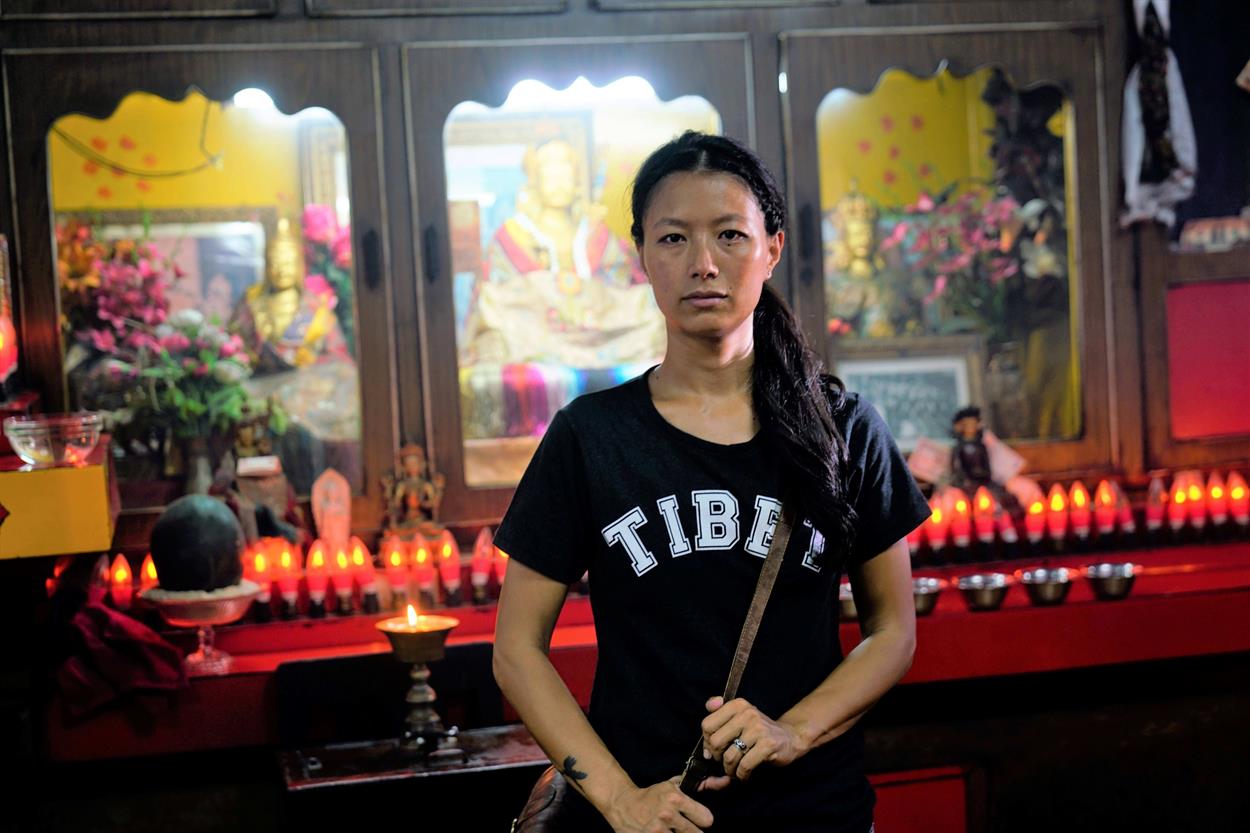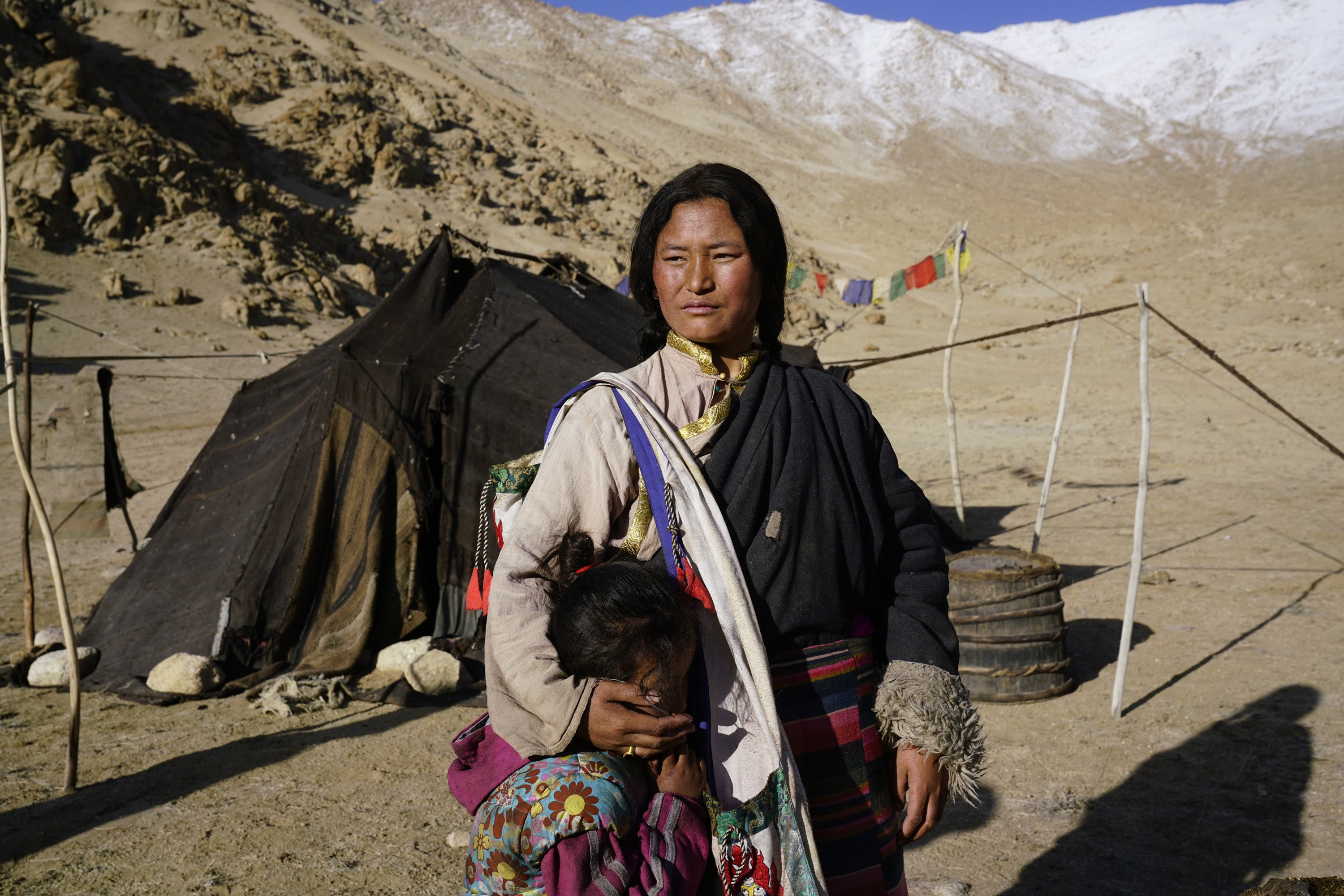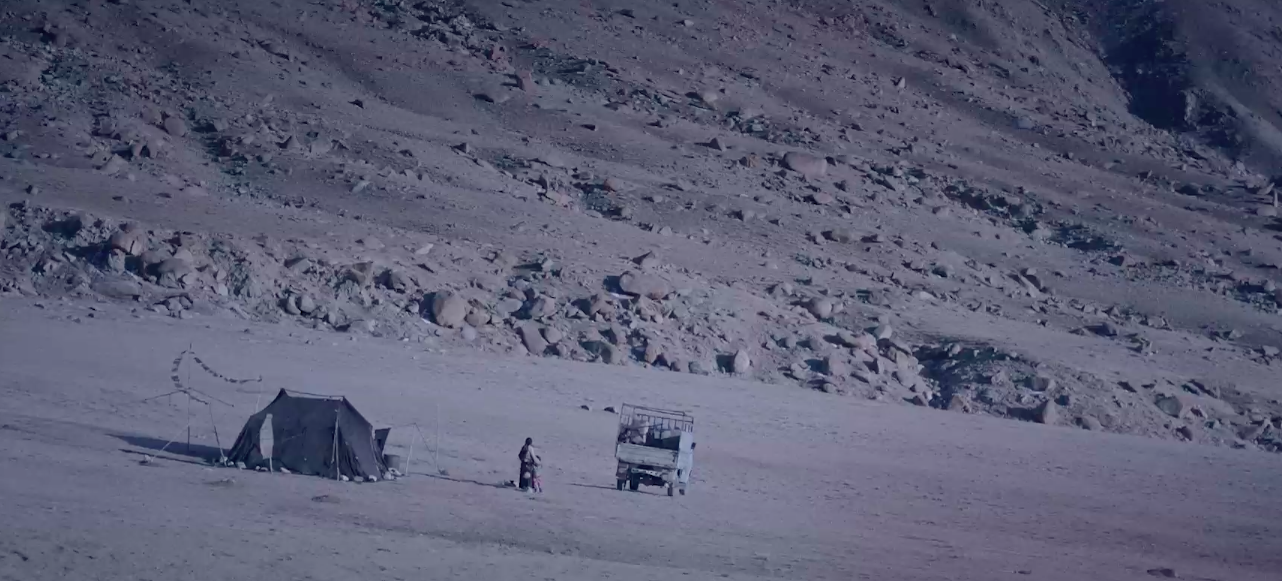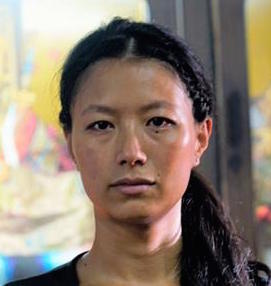
Review of the film Sweet Requiem by Jamyang Norbu
I was going to write the knockout review for Tenzing and Ritu’s new film The Sweet Requiem, but the poet Tsering Kyi from VOA beat me to it. She had seen the movie in early May at a special showing in Washington for the US Congress Human Rights Commission. Tsering-la had another advantage over me in that she herself had made a similar perilous escape from Tibet, as Dolkar in the film had. Hence the film had a harrowing immediacy for our poet/reviewer that she vividly manages to get across in her Tibetan language review Unbearable Memories.
I can make no such such claims, but the movie broke my heart anyway. It brought back memories of the interviews I conducted in the late 90s and early 2000 with escapees, writing reports and articles about their perilous journey across Nangpala and of their being shot “like dogs” just when they were crossing the high pass into Nepal.
The Sweet Requiem is compellingly realistic in recreating the icy bleakness, peril, pain, fear and near hopelessness of these escape attempts. The scenes were shot in Ladakh but it is apparant that at the altitudes and terrain our filmmakers and actors had to work, they not only suffered discomfort but possibly hypothermia, AMS and other dangers as well. All Tibetans owe a debt of gratitude to them for creating this moving narrative memory of a traumatic but important episode of Tibet’s tragic contemporary history, that most of us are rapidly forgetting.
The impressive cinematography is not limited to the escape scenes, but also comes across in less dramatic moments as well. There is a scene of the Jhangthang at night. A small solitary yak-hair tent stand before a giant snow covered mountain, which looms over it in the darkness. Inside the tent, by the smoky light of a small fire, the nomad Migmar and his wife anxiously go over their plans to send their older daughter Dolkar to India to get an education and meet the Dalai Lama. The two little girls sleep beside them, but Dolkar’s dark eyes peep out over the shaggy blankets reflecting her mother’s concerns.
The escape doesn’t go well. Migmar enlists the reluctant help of a guide Gompo with the payment of a zi stone. They meet a group of hapless escapees, one of whom, an old monk, is definitely not up to making the journey. Everything quickly goes downhill and there are squabbles and recriminations. A frustrated Gompo sneaks off one night, but gives the zi-stone to a half-asleep Dolkar. The next day before the remaining group gets to the Nangpala pass Chinese border guards gun down Migmar and another man. One escapee grabs little Dolkar and manages to flee the scene.
Twenty years later we find Dolkar now grown and living in the Tibetan colony of Majnukatilla in Delhi, celebrating her 26th birthday with her friends. She works as a beautician but aspires to go back to college. We see her working out at a Bollywood style dance studio, enjoying herself, yet the small pleasures in her life are subsumed by her personal tragedy. We see this in her constant yet rarely successful efforts to phone her sister and mother back home and in her repeated viewings of videos of immolations from Tibet on her smartphone. She is also reminded of the immolations in Majnukatilla where young activists organize vigils and prayers to commemorate the tragedy. One of the activists, Dorjee, has a crush on her.
The casting of Tenzin Dolkar as Dolkar is an inspired one. She carries the film. She has a strong face, conventionally unglamorous but classically Tibetan. It is a face that is able to express a range of emotions: joy, sadness, uncertainty, concern and anger, effortlessly with no suggestion of artifice.
The film moves into conventionally dramatic territory with the arrival of the former guide Gompo to Majnukatilla. Two Chinese spies (the least convincing characters in the film) also make their appearance, and they pressure Gompo to carry out some shady task for them in Dharamshala. But Dolkar recognizes Gompo and shadows him around the colony eventually accosting him –– and moving the film to its tragic resolution. I’m going to stop now. My daughter, Namkha, who’s editing this post tells me I should avoid spoilers.
But I must absolutely discuss the final scene of the film, which is a flashback to the beginning, to Dolkar as a little girl. She and her father are swaying to and fro in the back of a battered truck, slowly pulling away from their home. Dolkar’s mother stands before their black yak-hair tent, holding her younger daughter closely by her side, the grey smoky light of the early morning defining the arid landscape.
This scene has all the power and poignancy of the conclusion of Satyajit Ray’s Pather Panchali when Apu’s ill-starred family leave their ancestral village forever, also at dawn, on the back of a bullock cart with a single kerosene lantern swinging between the wheels. Serendipity perhaps, but both films conclude in near exactly the same way, just before the end credits roll –– with the swaying face of a child staring vacantly at a slowly receding space in time that was once home.


- CAST:
- Dolkar… Tenzin Dolker
- YoungDolkar… Tenzin Dechen
- Migmar… Rabyoung Thonden Gyalkhan
- TsetunDolma… Dolkar’s Mother
- Gompo… Jampa Kalsang
- Shavo Dorjee… Dorjee
Production companies: White Crane Films, Dialectic
Directors: Ritu Sarin, Tenzing Sonam
Screenwriter: Tenzing Sonam
Producers: Ritu Sarin, Shrihari Sathe
In Tibetan, English
91 minutes




As I read this article, I’m on a train headed towards Montreal and bound for Toronto from Halifax. Plenty of time (as one might imagine) to reflect and reminisce.
This takes me back to my own “not-so-harrowing” escape from Lhasa into Nepal and later India; where I had the good fortune of being raised by my relatives in Darjeeling (in particular, a very idylic town called Kurseong).
As documented in your blog and elsewhere about the plight of our fellow country men and women who have endured extreme hardships throughtout the 60s – early 90s whilst escaping Tibet. I may just be one of the few lucky ones, who did not have to endure much of the same hardships that have now become emblematic of the Tibetan spirit, of courage, perseverance and eventual quest for self-emancipation. In sharing my story on this comment page, I wish to add a small light-hearted footnote to the much more harrowing stories of stuggle and survival amidst great adversity.
The year was 1995. His Holiness had just proclaimed the young Gendun Chokyi Nyima to be the reincarnation of the 11th Panchen Lama. And whilst the Chinese authorities were busy concocting a plan to abduct him. Some few hundred kilometres away, a young boy of about the same age
had narrowly escaped a similar fate barely 5-6 months ago when he was adopted by his Uncle (a former CIA recruit of the Camp Hale infamy). I clearly remember my aunt (amala II) comparing me to the likeness of the dissapeared Panchen Lama as I had not yet lost the dark red hue on my cheeks.
Being more or less an infant at the time, I do not remember all the minute details of the escapade. But fragments of it still remain etched onto my mind eversince.
In Lhasa (on the night of the escape’95), I remember being seated onto the back of a vehicle (the ones that had to be operated by cranking at the levers in the front hood of the car) and aimlessly staring at my teary-eyed mother in confusion. Obviously, I did not know it at the time but meticulous preparations had already been done months prior. All the people who needed greasing had already been greased over and the plan was now set in motion. No turning back. Nomatter the consequence.
In addition to myself and my father (who was there to accompany me through the first leg of the journey) there were few other people in the car bound for the same destination. I do not know what happened to them. …After travelling clandestinely for a few hours without incident, we disembarked from the jeep and boarded a truck where we were all herded together under a tarpoline sheet surrounded by bricks and other construction materials. Not a single person uttered or exchanged a single word throughout the journey. We did however share bits and pieces of food, chura, yaksha, and the like …until we reached a place called “Darm” or “Durm”, a small border province at the crossroads between Tibet and Nepal.
At Darm, my father tried to coach me a little (incase a PLA soldier stopped me for questioning) forcing me to recite the sentences “I am visiting my sick grandmother over there!” numerous times. As it so happens, I was to be smuggled across the boarder disguised as a Nepalese truck driver’s son, which in all honesty seemed very unlikely as he was extremely dark skinned and I was very fair. Adopted maybe, but conceived? No!
Eitherway, my father’s hunch proved correct when the Nepalese truck driver was infact stopped for questioning by a female soldier in PLA uniform. After rehashing the father-son ruse with the PLA soldier who obviously did not believe a word coming out of the my Nepalese ‘father’s’ silver tongue. I was asked to disembark from the truck and was pulled aside for further questioninng at which point, I too went on auto-drive mode and recited the mantra “I’m visiting my sick grandmother over there!” pointing my index finger aimlessly at a crowd on the other side of the border, where a bunch of people (including an elderly woman) could be seen waving back at us. It was only after the whole ordeal that i realized that that old woman was my …soon-to-be amala number two.
And to this day, I cannot say with 100% certainty, whether or not the female guard was ethnically Tibetan …or just a PLA soldier with a slightly compassionate side. But something must have stirred in her to commit a good deed on that fateful day…. because she let me go (against her directives) knowing full well that I was crossing the border, never to return again. What I do know is that she was not paid for that kind deed; which in another parallel universe would have resulted in me languishing in jail, and being fed communist propaganda all day long.
A wonderful moving story. Thank you for sharing it on my blog. JN